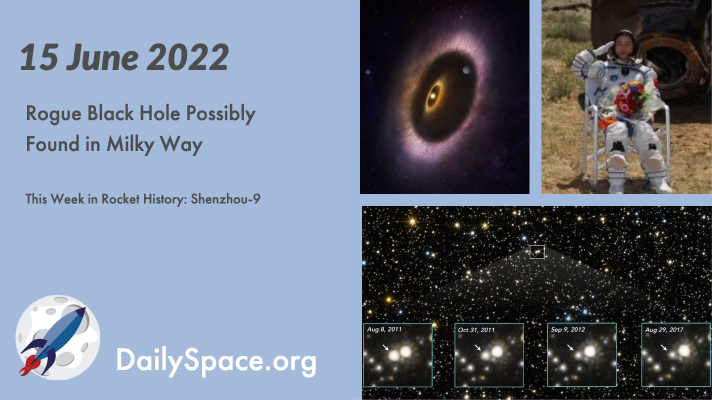
Jun 16, 2022 | Black Holes (Stellar), Crewed Space, Daily Space, Exoplanets, Moon, Random Space Fact, Rovers, Space China, Space History, Spacecraft, Stars, Venus
After six years of Hubble Space Telescope observations and the hypothesis that millions of black holes exist in the Milky Way, scientists have finally found direct evidence for the existence of one such black hole. Plus, planetary formation, a wandering star, and this week in rocket history, we look back at China’s first crewed space station docking.
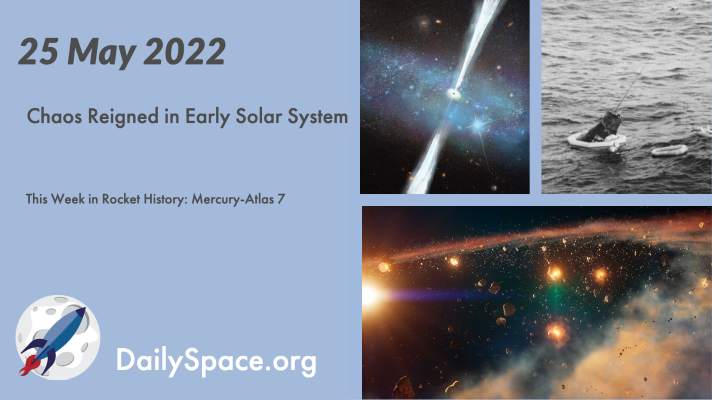
May 26, 2022 | Asteroids, Black Holes (Stellar), Crewed Space, Earth, Exoplanets, Galaxies, Our Solar System, Random Space Fact, Rockets, Space History, Spacecraft, Stars
Researchers using radioactive decay analysis have recreated the early history of some asteroids in our solar system, revealing a more chaotic phase than previously thought. Plus, a near-Earth asteroid, a trove of black holes, and this week in rocket history, we look back at Mercury-Atlas 7.

Mar 2, 2022 | Asteroids, Black Holes (Stellar), Crewed Space, Daily Space, Earth, Fast Radio Bursts, Neutron Stars / Pulsars, Rocket Lab, Rockets, Space China, SpaceX, Starlink, Supermassive Black Holes
As we return from our mini-break, we bring you some highlights of stories that happened while we were away, including black holes spiraling toward each other, the possible origin of a fast radio burst, and more information on the demise of the dinosaurs. Plus, Erik Madaus brings us updates on quite a few rocket launches.
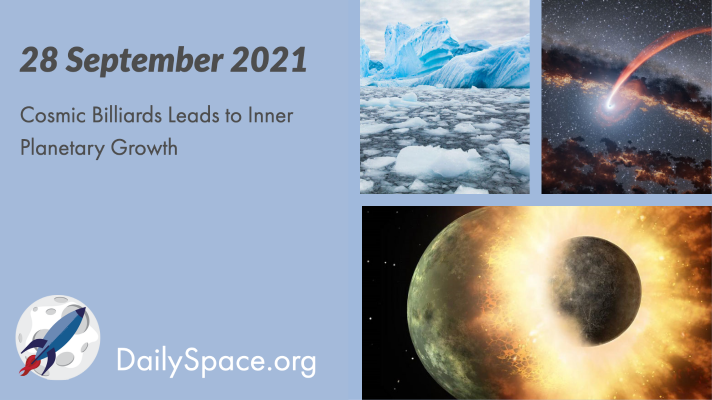
Sep 29, 2021 | Black Holes (Stellar), Climate Change, Daily Space, Earth, Mars, Mercury, Moon, Our Solar System, Stars, Venus
The inner solar system was a wild and wooly place as the planets were forming, and new research shows that the collisions that formed Earth and Venus were likely of the hit-and-run variety. Plus, polar ice loss warps the planet, and a black hole eats a star.
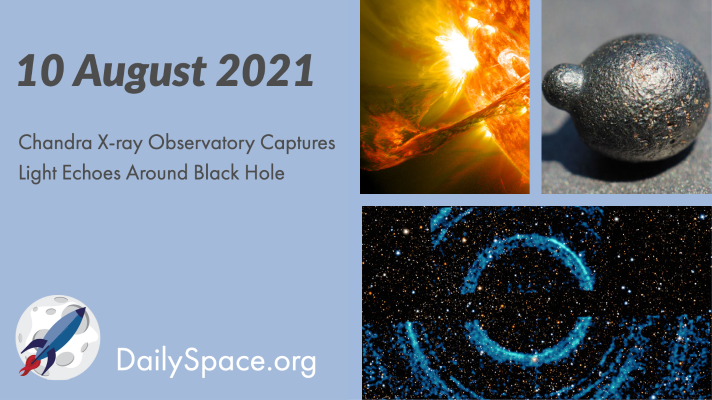
Aug 11, 2021 | Asteroids, Black Holes (Stellar), Daily Space, Earth, Jupiter, Mars, Mars 2020, Perseverance, Stars, The Sun
Based on X-ray detections from the Neil Gehrels Swift Observatory, scientists used the Chandra X-ray Observatory and found rings called light echoes moving out from a black hole and its companion star, reflecting off the surrounding dust clouds. Plus, solving the puzzle of the Sun and using glassy nodules to find a meteorite impact.
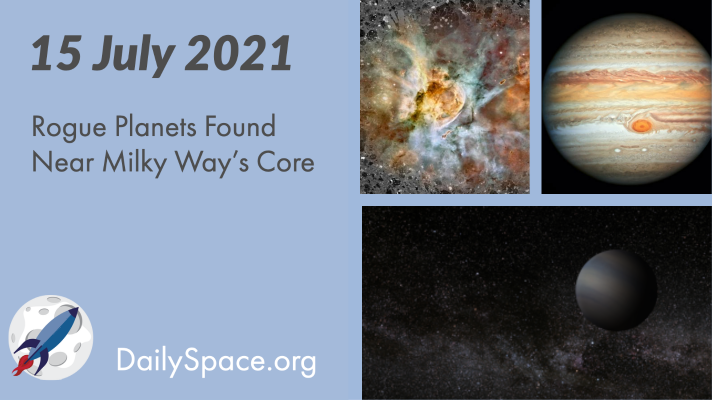
Jul 16, 2021 | Asteroids, Black Holes (Stellar), Conferences, Daily Space, Earth, Exoplanets, Globular Cluster, Jupiter, Kepler, Mercury, Our Solar System, Stars, Supernovae
Using data collected by NASA’s Kepler Space Telescope, scientists have found four free-floating, or rogue, planets near the core of the Milky Way. These planets formed in discs in other planetary systems and were thrown out by gravitational interactions with larger planets. Plus, the early solar system, including ancient Earth, Jupiter’s chemistry, and Mercury’s core.








 We record most shows live, on Twitch. Follow us today to get alerts when we go live.
We record most shows live, on Twitch. Follow us today to get alerts when we go live.